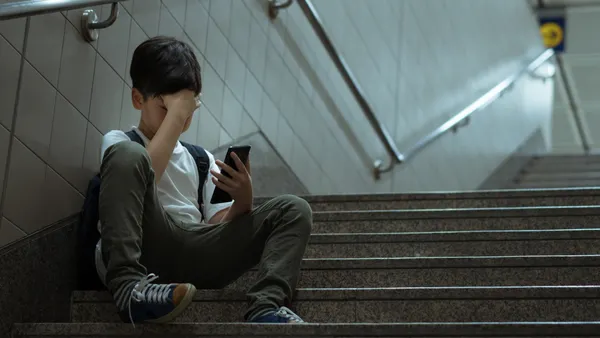Dive Brief:
- Game-based learning's star is on the rise for K-12 lessons ranging from traditional topics ranging from science to social studies, as well as for helping students build social-emotional skills or improving experiences for those in special education programs.
- District Administration reports that an upcoming study from researcher Vadim Polikov and Vanderbilt University, titled "Substantial Integration of Typical Educational Games into Extended Curricula," details benefits of short form game-based learning on engagement, critical thinking and performance on assessments.
- The 55 games covered in the study ran from 5 to 25 minutes, providing teachers a dashboard to track student progress and know whether they needed to re-teach a standard, District Administration reports, and examples of successful games included Splat-N-Spell, a vocabulary game from VocabularySpellingCity requiring K-2 students to squish bugs carrying the correct letters to spell a missing word onscreen.
Dive Insight:
More thought has been given to educational game design in recent years, boosting their utility in the classroom. Modern educational games are more engaging and align with a variety of learning standards, often presenting students with practical situations that also require them to employ "soft skills" like critical thinking, teamwork or empathy.
And game-based learning isn't just for kids, either. Higher ed has seen a rise in "serious gaming," which puts college students in scenarios where they must practice the skills they're learning in a consequence-free environment. One example would be a surgery simulator used in a med school, which could also potentially come with the dual benefit of cutting costs for cadavers.
As virtual reality tech improves, the possibilities for this space will only expand, as will its effectiveness in the classroom and career training.







 Dive Awards
Dive Awards





